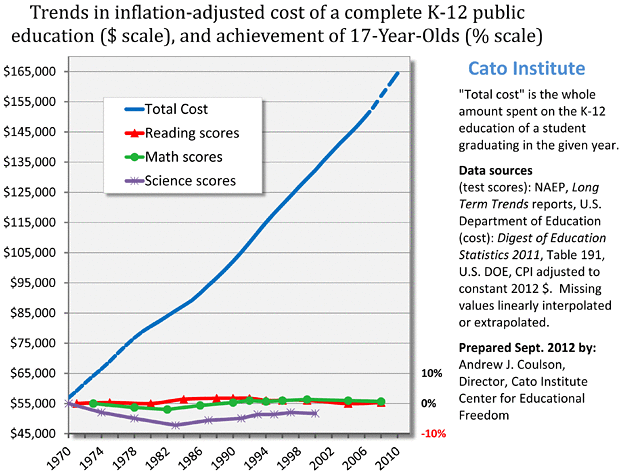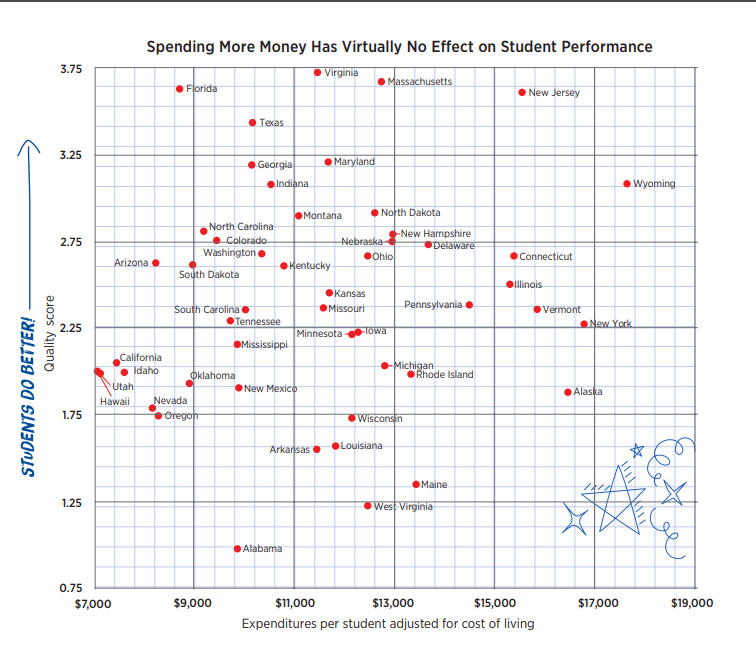Do you think that paying higher taxes for our public school system will solve its many problems? History tells us that 40 years of higher spending haven’t produced even a hint of improvement in student performance:

The following scatter plot looks at the spending issue in another way. Would you rather be NH, spending $13K per student and achieving a quality score of just over 2.75, or any one of the ten states (Florida, Virginia, Massachusetts, Texas, Georgia, Maryland, Indiana, North Carolina, Montana, and North Dakota) which spend less than $13K per student (some far, far less, such as Florida's $8.6K) and produce better student performance (some far better such as Florida, Virginia, and Massachusetts)?

For more details, read the full article here: https://reason.com/2018/10/07/everything-you-know-about-stat/
Union-dominated public school compensation packages are generally based on seniority instead of on student outcomes. It's no wonder that the numbers show no cause and effect relationship between costs and student performance. There are far better ways to improve education.
These are exciting times for those who want to help rebuild NH and America to pre-pandemic greatness. In public education, the pandemic has forced an on-the-fly examination of some antiquated practices. In the 21st century there are myriad opportunities to develop educational systems that truly focus on students without requiring large numbers of adults and children to gather in a nearby location each day. For example, the title alone of this article suggests exciting changes: “’Pandemic Pods’ Are Fundamentally Reshaping K-12 Education”:
Basically, Prenda's model allows groups of 5 to 10 students to gather 4 or 5 hours per day, depending on grade (K-2 or 3-8 respectively), four days per week (16-20 hours per week). "Guides", not teachers, host the classes, often in their homes but also in rented space, or even public school buildings. The guides “inspire, coach, and mentor their students without worrying about grading papers, lesson plans, or being a specialist in any subject. Guides are paid up to $30 in Arizona where the program began – good money for a part time job. The state pays the $5,500 per student annual tuition –20% of Sunapee’s current $27,486 cost per student for the 2018/19 school year. The focus is clearly centered on improving student outcomes, rather than on maximizing spending under the misguided assumption that higher costs per pupils produce better student outcomes.